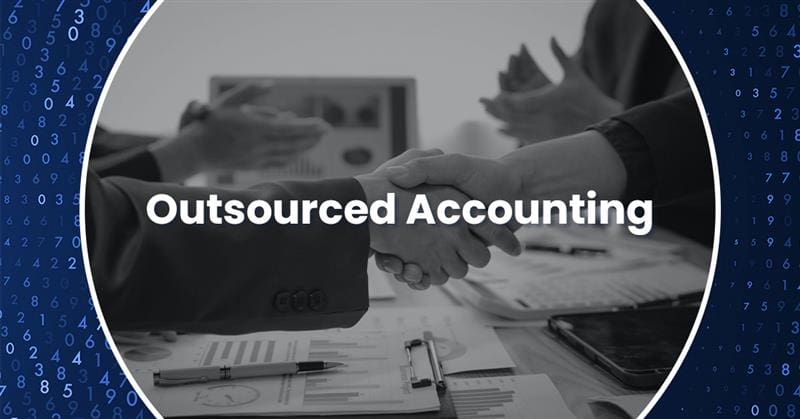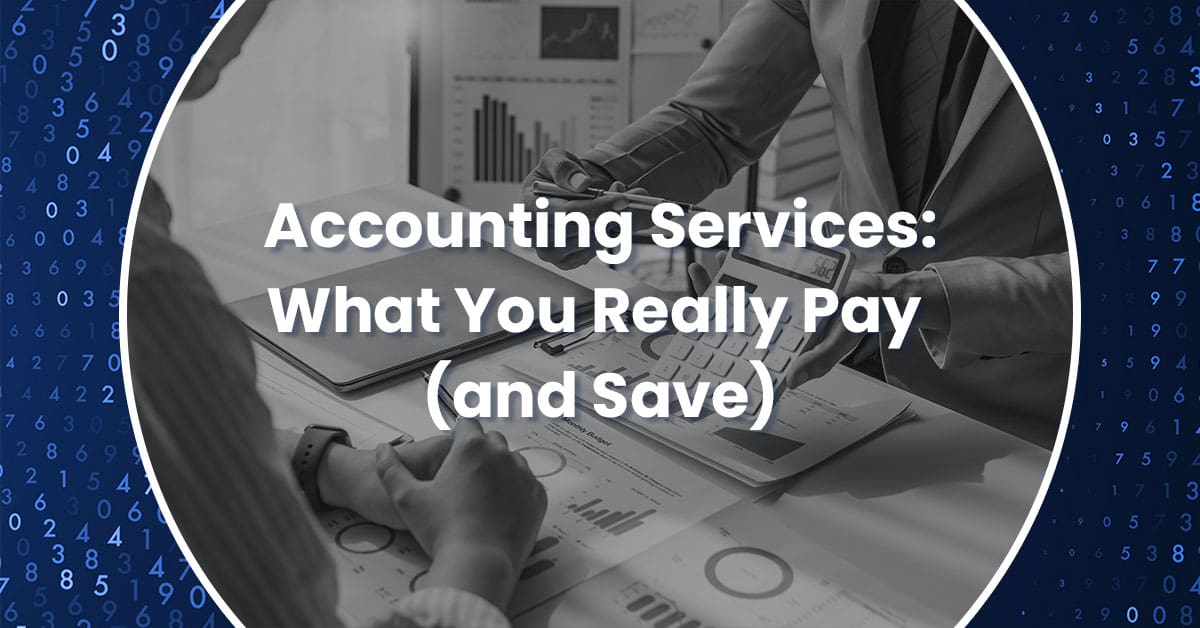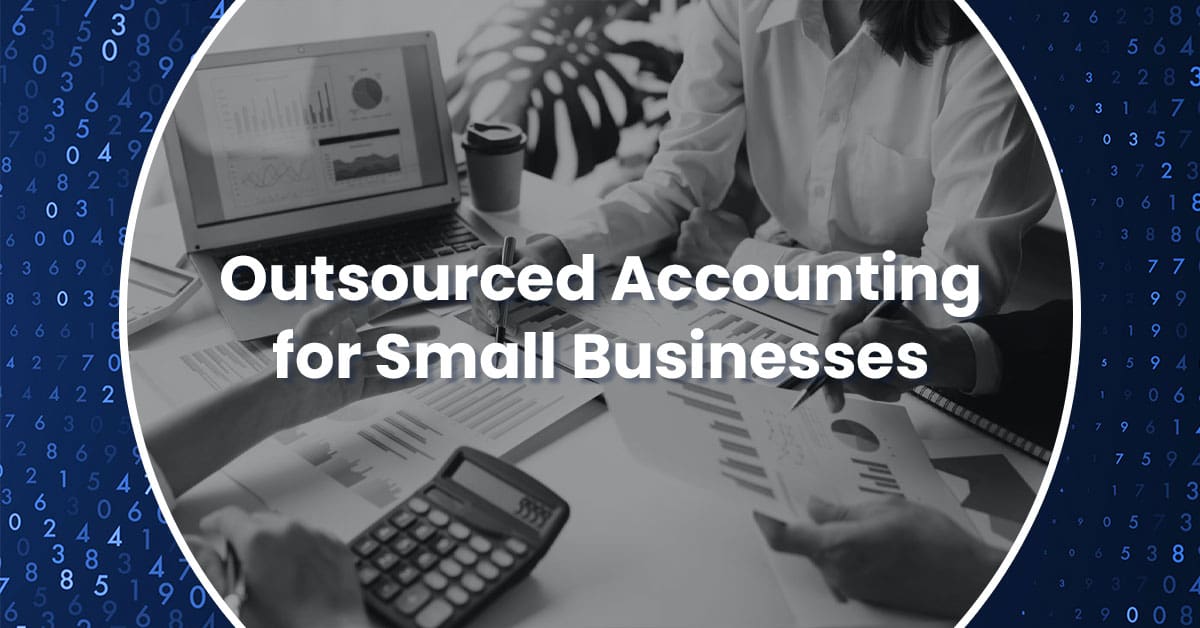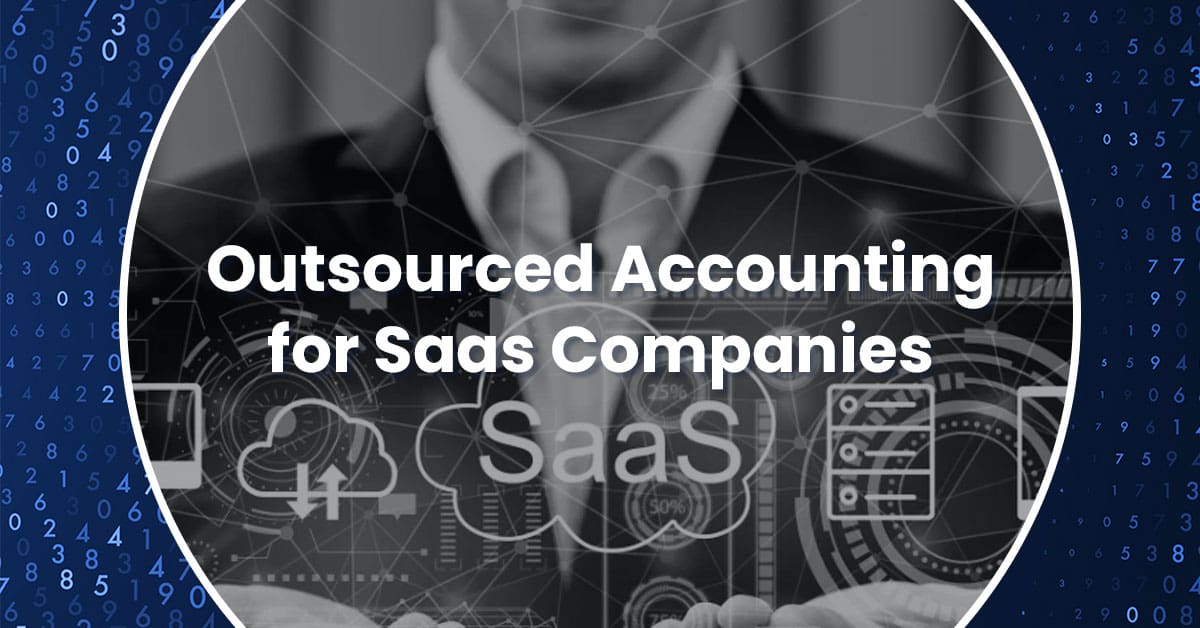As financial operations become more complex, many companies are rethinking how they manage their accounting. Outsourced accounting offers a structured way to handle essential tasks such as bookkeeping, payroll, and reporting, without the need to build a full in-house team. Rather than handling these responsibilities internally, businesses work with experienced professionals who operate remotely. For business leaders, outsourced accounting offers more than just cost efficiency; it provides flexible support, strategic financial insights, and more time to focus on driving business growth.
In this article, we’ll walk through what outsourced accounting is, what services it includes, and how it can support your business growth.
What Is Outsourced Accounting?
Outsourced accounting is a service model that allows businesses to delegate financial responsibilities to a third-party team. This can include everything from bookkeeping and payroll to monthly reporting, and budgeting support.
Rather than managing these functions internally, companies work with an external partner who already has the technology, skill sets, and processes in place. This reduces the need for full-time hires, eliminates overhead tied to recruiting and onboarding, and allows organizations to align their financial support with changing priorities.
The shift toward outsourced accounting has accelerated in recent years as businesses focus more on agility, digital tools, and reliable financial insights. With cloud-based tools, automation, and secure remote collaboration now standard, outsourcing provides a clear, structured way to strengthen accounting functions without building them from scratch.
What Services Are Typically Included?
Outsourced accounting goes beyond simple number-crunching. It typically includes a comprehensive suite of services that support day-to-day financial operations and long-term planning. For many businesses, these services become the backbone of confident, data-informed decision-making.
Here’s what outsourced accounting services include:
- Bookkeeping and general ledger management: Tracking all financial transactions and maintaining accurate records.
- Accounts payable and receivable management: Handling vendor payments and customer invoicing to maintain smooth cash flow and reduce administrative burden.
- Payroll processing: Reliable and timely execution of employee compensation, including reporting and compliance tracking.
- Month-end close and financial reporting: Delivering consistent, structured reports that help leadership assess performance and make informed decisions.
At Wiss, our outsourced accounting services are tailored to the specific needs of mid-sized, investor-backed, or family-run businesses. Whether it’s handling everyday accounting tasks or offering strategic direction, Wiss’s Advisory team delivers scalable solutions designed to evolve with your business.
How Does Accounting Outsourcing Work?
At its core, outsourced accounting is a structured process that replaces or supplements internal accounting functions with a dedicated external partner. This model is built for flexibility and designed to scale alongside your business as needs evolve.
Most outsourced accounting setups are cloud-based, enabling secure document sharing, real-time collaboration, and streamlined workflows. Businesses typically connect with a remote team that manages everything from transaction entry to high-level financial analysis using integrated software tools and automation platforms.
The onboarding process usually starts with a discovery phase, where the provider assesses your current accounting systems, pain points, and goals. From there, a tailored transition plan is created, whether that’s moving all financial functions externally or just select areas like payroll or reporting.
There are two common models:
- Fully outsourced: The provider handles all accounting functions as a virtual department.
- Co-sourced: Your internal team works alongside the outsourced team, often leaning on them for high-skill tasks like forecasting or compliance.
This approach offers significant advantages in terms of scalability. Whether you’re experiencing rapid growth, facing seasonal spikes, or simply looking to reduce overhead, outsourced accounting can adjust quickly without the delays and costs of hiring.
Benefits of Outsourcing Accounting for Growing Businesses
For growing companies, managing accounting in-house can become both time-consuming and expensive. Outsourced accounting provides a smarter, more adaptable alternative, especially when financial demands start outpacing internal capacity.
Here’s how outsourcing delivers tangible value:
- Cost savings: Avoid the high costs of hiring, onboarding, and retaining full-time staff. You only pay for the services you need. No salaries, benefits, or training overhead.
- Access to expert talent: Gain immediate access to a team of specialists across bookkeeping, reporting, compliance, and forecasting without the recruitment delays.
- Scalability: Easily expand or scale back services as your business evolves. Outsourced accounting adapts to periods of rapid growth, seasonal changes, or structural shifts.
- Strategic insights: High-level guidance becomes more accessible when you tap into outsourced CFO advisory and financial planning services.
- Operational focus: With back-office burdens off your plate, your internal team can redirect energy toward core business initiatives.
Wiss provides outsourced financial leadership designed to grow with you. Through services like CFO Advisory, our experts help businesses move beyond transactional accounting and into long-term strategic thinking.
Outsourced vs In-House Accounting: What’s Right for You?
Deciding between outsourced and in-house accounting isn’t always straightforward. The right fit depends on your company’s size, goals, resources, and internal capacity.
Here’s a quick comparison to help clarify the differences:
| Factor | In-House Accounting | Outsourced Accounting |
|---|---|---|
| Cost | High fixed costs (salaries, benefits, overhead) | Flexible, pay-for-what-you-need pricing |
| Expertise | Limited to internal hires | Access to a full team of specialists |
| Scalability | Slower, requires new hires | Easily adjustable to growth or slow periods |
| Technology | Often outdated or limited | Integrated with advanced cloud-based tools |
| Strategic Support | May lack CFO-level insight | Strategic input via services like CFO Advisory |
So when does outsourcing become the smarter move?
If your business is growing faster than your team can handle, facing recurring reporting delays, or struggling with financial visibility, outsourcing can provide the structure and expertise needed without the long lead time of hiring.
At Wiss, we specialize in helping companies make a smooth and confident transition from in-house to outsourced accounting. Our team customizes every engagement to ensure continuity, accuracy, and clarity from day one.
How to Get Started with Outsourced Accounting
Choosing to outsource your accounting is a strategic move, but getting started requires more than just comparing prices. The right partner should bring not only technical expertise but also a deep understanding of your business goals.
Here’s what to look for in a provider:
- Proven expertise in financial reporting, compliance, and advisory
- Robust technology stack with secure, cloud-based collaboration tools
- A clear onboarding plan with minimal disruption to your current operations
- Scalable services that evolve with your growth
More than a cost-cutting tactic, outsourcing is about unlocking strategic value. The right partner helps you move faster, make better decisions, and avoid costly financial blind spots.
When Is the Right Time to Outsource?
You might be ready if:
- Your month-end close process takes too long
- You’re missing timely financial insights
- Your internal team is overwhelmed or under-resourced
- You’re scaling fast and need flexible support
- You’re relying too heavily on one or two key team members
If any of this sounds familiar, it may be time to rethink how your accounting function is set up.
Connect with Wiss to talk through your current challenges, explore what’s possible, and see how we can help build a structure that works better for your business.





 Previous
Previous






